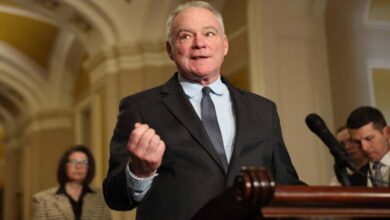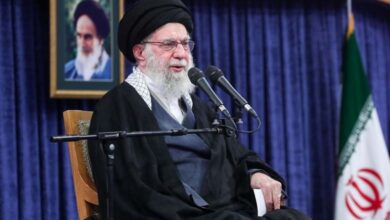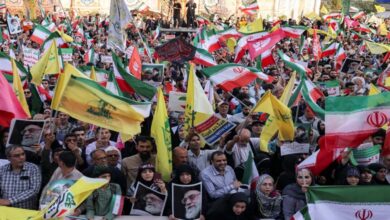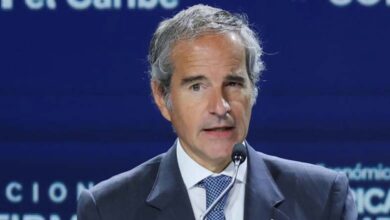UN Proposal to Hold Elections in Libya Within 18 Months
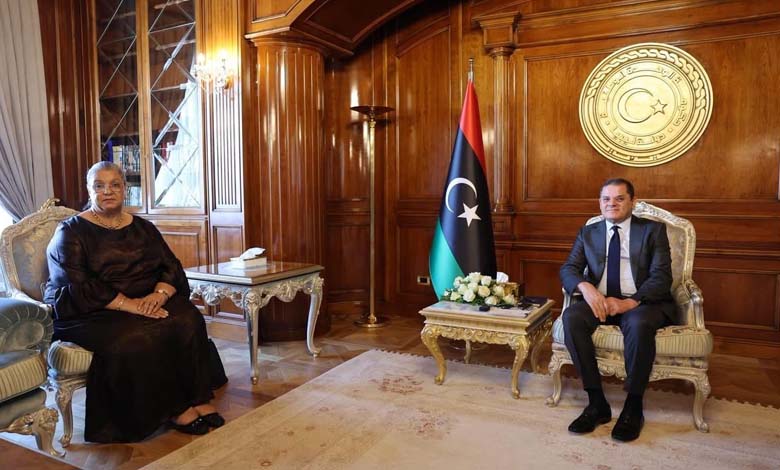
The United Nations Special Representative for Libya, Hanna Tetteh, on Thursday presented a proposed roadmap aimed at holding presidential and parliamentary elections within a maximum period of 18 months. The initiative, which requires the approval of the country’s main political stakeholders despite persistent divisions, is built around three key pillars.
-
Tetteh set to present comprehensive roadmap on Libyan elections to the UN Security Council
-
Libyans Persist in Street Protests to Oust Dbeibeh — A Message to Tetteh
Addressing the UN Security Council, Tetteh stated: “I propose a roadmap based on three main pillars: first, the preparation of an electoral framework that is technically sound and politically viable to enable presidential and legislative elections. Second, the unification of institutions through a new, inclusive government.”
She added: “Third, the establishment of a structured dialogue that allows broad participation of Libyans to address key issues requiring collective action, to create a conducive environment for elections, and to tackle the longstanding drivers of conflict. This would also support short-term efforts to unify institutions and strengthen governance in key sectors.”
-
Ghanaian Hanna Tetteh Appointed UN Envoy to Libya after Months of Vacancy
-
UN Proposal to Hold Elections in Libya Within 18 Months
Tetteh emphasized that “this plan has been designed as a gradual, integrated package, with a sequenced process where each step facilitates the next, to ensure the successful implementation of national elections.”
Regarding the timeline, she noted: “The required timeframe is between 12 and 18 months to complete the roadmap, culminating in general elections.”
In light of her extensive consultations with various segments of Libyan society, she stressed that “the clearest message received is the desire to end the cycle of repeated transitional phases.”
-
United Nations Advances Political Solution in Libya with Appointment of Swedish Richardson
-
Dbeibah blocks Western Libyan MPs from traveling to Benghazi to hinder budget approval
She further remarked: “Libyans seek to preserve and strengthen the unity of the country and its institutions, renew legitimacy through presidential and parliamentary elections, and bring an end to foreign interference, which continues to be a recurring concern.”
At the end of July, Tetteh conducted several international and regional tours to garner support for the proposed roadmap, aimed at breaking Libya’s political deadlock, though major obstacles remain, including narrow political interests and the influence of external powers.
-
International Interface or Political Islam Tool? UN Mission in Libya Accused of Backing the Muslim Brotherhood
-
Al-Mishri Denies New Session to Elect Head of Libya’s High Council of State
Earlier on Thursday, UN Secretary-General António Guterres, in a report presented to the Security Council, urged Libyan leaders to “work constructively on the basis of the advisory committee’s proposals and agree on a roadmap leading to elections.”
The Libyan Advisory Committee, made up of 20 experts, was established by the UN mission on February 4. After three months of deliberations, it put forward several options: holding presidential and parliamentary elections simultaneously; conducting parliamentary elections first, followed by a constitutional review before presidential elections under a permanent constitution; adopting a permanent constitution prior to elections; or creating a constituent assembly to replace existing institutions before launching a constitutional review process, ultimately leading to elections.
-
Counterfeit Billions in Libya Prompt Dbeibah to Demand Immediate Investigation
-
Accusations of Bias Target UN Mission in Libya
For years, the UN mission has sought to guide Libya toward elections that could resolve the political crisis caused by the existence of two rival governments: the Government of National Unity led by Abdelhamid Dbeibah, based in Tripoli and internationally recognized, which controls the country’s west; and the government appointed in 2022 by the House of Representatives, currently headed by Ossama Hammad and based in Benghazi, which administers the east and much of the south.
Libyans hope that these long-delayed elections will put an end to ongoing political and military conflicts and bring closure to the extended transitional period that has continued since the overthrow of Muammar Gaddafi’s regime (1969–2011).



